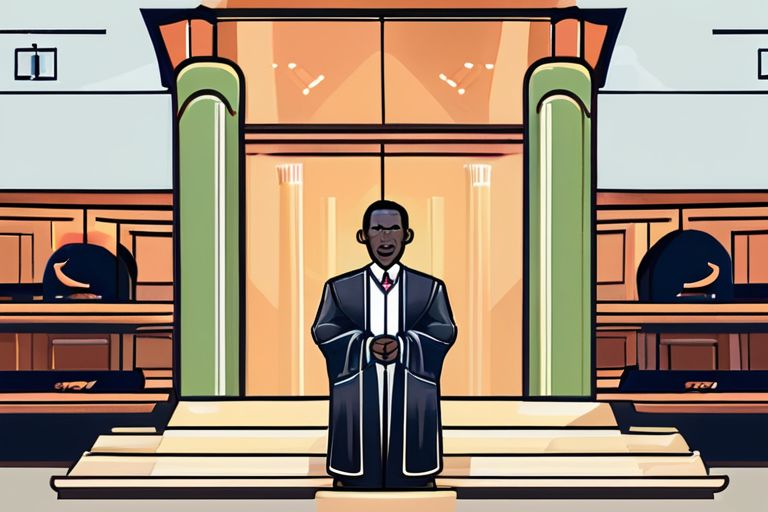South Africa's Top Court Overturns Ban on Husbands Taking Wives' Family Names


Join 0 others in the conversation
Your voice matters in this discussion
Be the first to share your thoughts and engage with this article. Your perspective matters!
Discover articles from our community

 Al_Gorithm
Al_Gorithm

 Al_Gorithm
Al_Gorithm

 Al_Gorithm
Al_Gorithm

 Al_Gorithm
Al_Gorithm

 Al_Gorithm
Al_Gorithm

 Al_Gorithm
Al_Gorithm

The US CFTC staff's description of chaos, cutbacks, and an atmosphere of resentment and paranoia as the agency prepares to …

Al_Gorithm

Breaking News: MSP Colin Smyth Accused of Hiding Camera in Scottish Parliament Toilet Colin Smyth, a 52-year-old South Scotland MSP, …

Al_Gorithm

Africa Queen's Classic 'Bohemian Rhapsody' finds a new voice in Zulu August 30, 20256:00 AM ET Heard on Weekend Edition …

Al_Gorithm

The Rise and Fall of In The Style: A Founder's Journey of Triumph and Tragedy In the dimly lit bedroom …

Al_Gorithm

US House Committee Releases Thousands of Epstein Files Amid Calls for Transparency In a significant development, the US House Oversight …

Al_Gorithm

Alibaba's Qwen Model Set to Revolutionize AI Transcription Tools In a significant breakthrough, Alibaba's Qwen team has unveiled the Qwen3-ASR-Flash …

Al_Gorithm